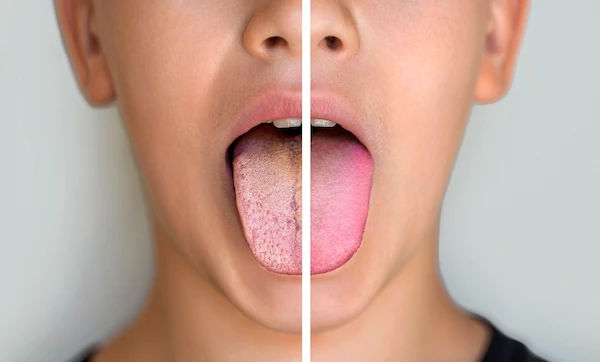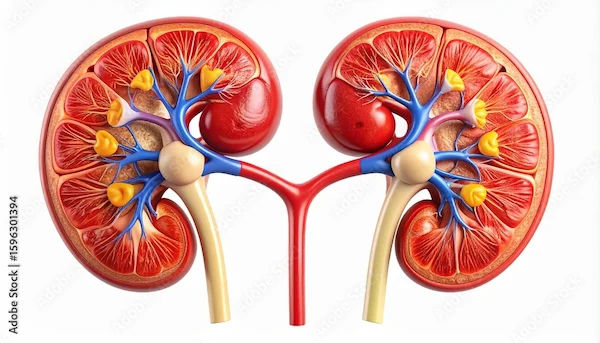Understanding Hypothyroidism and Its Management
Hypothyroidism occurs when your thyroid doesn’t produce enough hormones, leading to fatigue, weight gain, and other symptoms. Learn about its causes, diagnosis, treatment options, and lifestyle tips for effective management.

Written by Dr. Rohinipriyanka Pondugula
Reviewed by Dr. J T Hema Pratima MBBS
Last updated on 26th Aug, 2025

Hypothyroidism is a common health condition where the thyroid gland doesn’t produce enough thyroid hormones. These hormones play a crucial role in regulating metabolism, energy levels, and overall bodily functions. When their levels drop, it can lead to various symptoms that affect daily life.
If you or someone you know has been diagnosed with hypothyroidism, don’t worry; it’s manageable with the right care and lifestyle adjustments. Let’s break down what hypothyroidism is, its symptoms, causes, and how you can effectively manage it.
What is Hypothyroidism?
The thyroid gland, located in the neck, produces hormones (T3 and T4) that control metabolism, heart rate, body temperature, and energy levels. Hypothyroidism occurs when this gland becomes underactive, leading to insufficient hormone production.
This condition is more common in women, especially those over 60, but it can affect anyone at any age. The good news is that with proper treatment and lifestyle changes, most people with hypothyroidism can lead healthy, active lives.
Common Symptoms of Hypothyroidism
Since thyroid hormones affect multiple body functions, symptoms can vary. Some common signs include:
- Fatigue and sluggishness – Feeling unusually tired despite adequate rest.
- Weight gain – Unexplained weight gain or difficulty losing weight.
- Cold sensitivity – Feeling excessively cold, even in normal temperatures.
- Dry skin and hair – Skin may become rough, and hair may thin or become brittle.
- Muscle weakness and joint pain – Aches, stiffness, or cramps in muscles and joints.
- Mood changes – Depression, irritability, or brain fog (trouble concentrating).
- Constipation – Slower digestion due to reduced metabolism.
- Irregular or heavy menstrual periods – Women may experience changes in their cycle.
- If you notice these symptoms persisting, it’s best to consult a doctor for proper evaluation.
What Causes Hypothyroidism?
Several factors can lead to an underactive thyroid:
1. Autoimmune Disease (Hashimoto’s Thyroiditis) – The most common cause, where the immune system mistakenly attacks the thyroid.
2. Thyroid Surgery or Radiation Therapy – Removal of part or all of the thyroid gland can reduce hormone production.
3. Certain Medications – Some drugs (like lithium or amiodarone) can interfere with thyroid function.
4. Iodine Deficiency – Iodine is essential for thyroid hormone production, and a lack of it can cause hypothyroidism.
5. Pituitary Gland Disorders – Rarely, problems with the pituitary gland (which controls the thyroid) can lead to low hormone levels.
Understanding the cause helps in tailoring the right treatment plan.
Consult Top Specialist
How is Hypothyroidism Diagnosed?
If your doctor suspects hypothyroidism, they may recommend:
- Blood Tests – Measuring TSH (Thyroid-Stimulating Hormone) and T4 levels. High TSH with low T4 confirms hypothyroidism.
- Antibody Tests – To check for autoimmune thyroid disease (Hashimoto’s).
- Early diagnosis helps prevent complications like heart disease, nerve damage, or infertility.
Managing Hypothyroidism: Treatment & Lifestyle Tips
1. Medication (Thyroid Hormone Replacement)
The standard treatment is levothyroxine, a synthetic thyroid hormone taken daily. Key points:
- Take it on an empty stomach (preferably in the morning).
- Avoid calcium or iron supplements within 4 hours of taking the medicine.
- Regular follow-ups with your doctor to adjust dosage if needed.
2. Diet & Nutrition
While no specific diet cures hypothyroidism, certain foods help support thyroid function:
- Iodine-rich foods – Seafood, dairy, eggs, and iodized salt (in moderation).
- Selenium & Zinc – Found in nuts, seeds, whole grains, and lean meats.
- Fiber-rich foods – Helps with digestion (constipation is a common symptom).
Foods to Limit:
- Soy products – Can interfere with thyroid hormone absorption.
- Cruciferous vegetables (raw) – Like cabbage, broccoli, and cauliflower (eat them cooked in moderation).
- Excess sugar & processed foods – Can worsen fatigue and weight gain.
3. Exercise & Stress Management
- Regular physical activity (walking, yoga, or light strength training) helps boost metabolism and energy.
- Stress reduction – Chronic stress can worsen thyroid function. Try meditation, deep breathing, or hobbies that relax you.
4. Regular Monitoring
- Get periodic blood tests to ensure hormone levels stay balanced.
- Watch for new symptoms and discuss them with your doctor.
Get Your Symptoms Checked now
When to See a Doctor?
If you experience persistent fatigue, unexplained weight gain, or other symptoms mentioned earlier, consult a healthcare provider. Early treatment prevents complications and improves quality of life.
If you need expert advice or thyroid function tests, you can book a consultation or lab test through Apollo 24|7 for convenient and reliable healthcare support
Final Thoughts
Hypothyroidism is a manageable condition with the right treatment and lifestyle changes. By taking prescribed medications, eating a balanced diet, staying active, and keeping up with doctor visits, you can live a healthy and fulfilling life.
Would you like to schedule a thyroid test or speak to an endocrinologist? Visit Apollo 24|7 today for hassle-free appointments and expert care.
Consult Top Specialist
Consult Top Specialist

Dr. Bulbul Biswas
General Practitioner
35 Years • MBBS, Diploma in Maternity and child welfare
Kolkata
HERSTEL CARE CLINIC, Kolkata

Dr. Mazhar Baig
General Practitioner
28 Years • MBBS
Bengaluru
Burhaan Clinic, Bengaluru

Dr Venkata Naga Sai Tribhushan Rambhatla
General Physician
3 Years • MBBS
Bengaluru
PRESTIGE SHANTHINIKETAN - SOCIETY CLINIC, Bengaluru

Dr. Anand Ravi
General Physician
2 Years • MBBS
Bengaluru
PRESTIGE SHANTHINIKETAN - SOCIETY CLINIC, Bengaluru

Dr Syed Mizra M
General Physician/ Internal Medicine Specialist
2 Years • MBBS
Bengaluru
PRESTIGE SHANTHINIKETAN - SOCIETY CLINIC, Bengaluru
Consult Top Specialist

Dr. Bulbul Biswas
General Practitioner
35 Years • MBBS, Diploma in Maternity and child welfare
Kolkata
HERSTEL CARE CLINIC, Kolkata

Dr. Mazhar Baig
General Practitioner
28 Years • MBBS
Bengaluru
Burhaan Clinic, Bengaluru

Dr Venkata Naga Sai Tribhushan Rambhatla
General Physician
3 Years • MBBS
Bengaluru
PRESTIGE SHANTHINIKETAN - SOCIETY CLINIC, Bengaluru

Dr. Anand Ravi
General Physician
2 Years • MBBS
Bengaluru
PRESTIGE SHANTHINIKETAN - SOCIETY CLINIC, Bengaluru

Dr Syed Mizra M
General Physician/ Internal Medicine Specialist
2 Years • MBBS
Bengaluru
PRESTIGE SHANTHINIKETAN - SOCIETY CLINIC, Bengaluru





